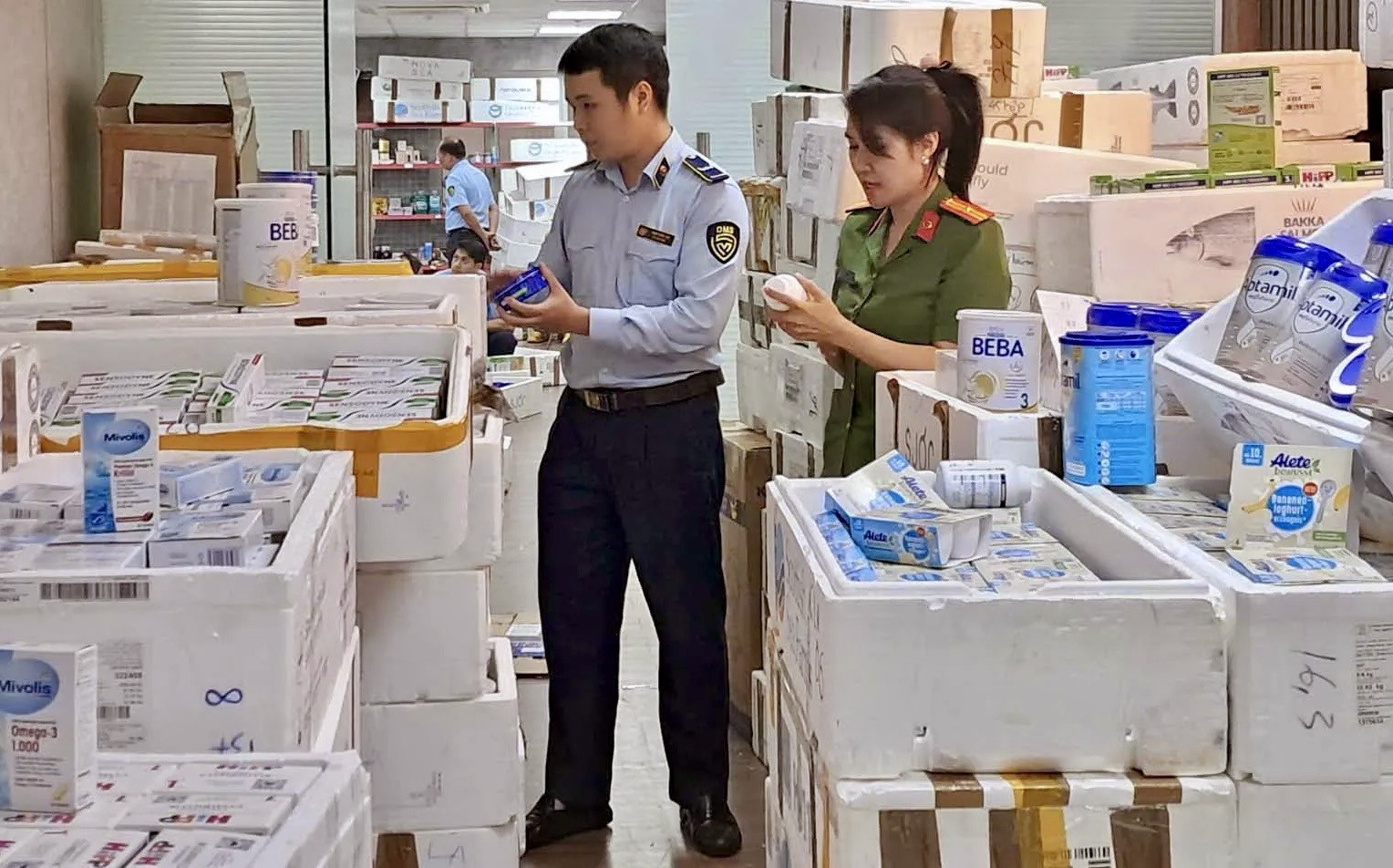After a wave of anti-counterfeit enforcement actions, the chairman of Vietnam’s Anti-Counterfeiting and Trademark Protection Association received a message from a business owner celebrating a sudden surge in orders and product sell-outs.
Struggling to survive in their own market

Speaking with VietNamNet about the challenges of combating fake and substandard goods, Le Thi Nga, General Director of Tam Dao Bee Joint Stock Company (Honeco), said that legitimate businesses face great difficulty surviving in Vietnam’s domestic market due to counterfeit products.
Honeco has specialized in the production and processing of honey-based products for over 20 years. The company operates a GMP and FSSC 22000-certified factory and a globally recognized quality control lab, ensuring rigorous standards from raw materials to finished goods. Its products are accepted in demanding markets like the US, Germany, and South Korea.
However, Nga admitted that most of Honeco’s products are sold for export or to manufacturers. Retail sales within Vietnam remain extremely challenging due to competition from fake and low-quality products that are sold at extremely low prices.
“Vietnamese consumers are accustomed to buying homemade goods sold all over social media. Most of these products lack quality certification but are still in high demand because of their low prices,” she explained.
Honest businesses face market imbalance
When Nga first ventured into the honey business, she intended to focus on the domestic market. But amid a chaotic mix of authentic and counterfeit products, she shifted her strategy toward exports.
Recalling a case in Dak Lak where a facility mixed coffee with soybeans and color and flavor additives to produce tons of fake coffee, Phan Minh Thong, Chairman of Phuc Sinh Group, commented: “We’ve been neglecting counterfeit enforcement for too many years.”
Thong, whose company exports coffee and pepper to 120 countries, noted that he’s often heard jokes from partners: “Vietnam is the world’s second-largest coffee exporter but has no real coffee to drink.”
This pushed him to launch a line of 100% pure coffee for the domestic market. However, he encountered immense difficulty due to a lack of consumer support. Many locals are used to coffee mixed with corn, soybeans, or additives.
“Why add chemicals and flavorings to coffee? Yet people have come to accept this as normal,” he said. While the factory price of freshly roasted coffee is about 235,000 VND/kg (around 9.20 USD), many products on the market sell for just 130,000-150,000 VND (5-6 USD), creating an unfair pricing competition.
Thong emphasized that exporting is far easier due to favorable policies. Exporters sometimes access loans with interest rates as low as 1-2%, while domestic businesses face rates as high as 10-12% annually. Despite this, he remains committed to the local market to offer consumers genuine coffee.
Rooting out counterfeit products is essential

According to the Department of Domestic Market Management and Development (Ministry of Industry and Trade), after one month of intensified anti-smuggling and anti-counterfeit operations under Directive No. 65 issued on May 15 by the Prime Minister, market surveillance forces nationwide uncovered and addressed 3,114 violations.
Among these were large-scale counterfeit operations involving food, fake branded goods, smuggled items, and substandard consumer products.
While crackdowns may cause short-term disruptions in the market, Nguyen Dang Sinh, Chairman of the Vietnam Anti-Counterfeiting and Trademark Protection Association (VATAP), stressed that there must be zero tolerance for actions that distort the business environment and endanger consumers, investors, and legitimate enterprises.
Counterfeit and substandard goods not only harm consumers but also rob genuine companies of revenue, destabilize the business environment, and result in tax losses for the state.
He said sweeping out fake goods is crucial to restoring market order and creating a truly fair, transparent business environment.
“In recent days, many association members have told me that since the crackdown began, their sales have soared. One even texted me excitedly saying their orders have spiked and products are selling out,” Sinh shared.
However, Sinh cautioned that current actions only address the surface of the problem. “To clean up the market and ensure transparency, authorities must go deeper and eliminate counterfeit goods at the root.”
“We’re very happy that authorities are ramping up anti-counterfeit operations,” said Le Thi Nga. “When the market is cleaned up and fake goods are eradicated, real producers finally have a chance to survive, compete, and grow in the domestic market.”
Phan Minh Thong added, “With Resolution 68 of the Politburo to promote private sector growth and stronger enforcement against counterfeits, we’re hopeful. Private enterprises now have a better environment to operate and serve domestic consumers with real products.”
Tam An